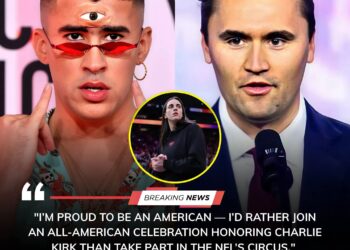When Ichiro Suzuki was officially inducted into the Baseball Hall of Fame, he made history once again — this time as the first Asian-born player to receive the sport’s highest honor. It was a fitting tribute to a career that not only redefined excellence on the field but also changed the landscape of Major League Baseball for Asian players forever.
Ichiro’s impact goes far beyond his 3,089 MLB hits, 10 Gold Gloves, and 10 straight 200-hit seasons. He was a cultural bridge, a trailblazer who turned the dream of playing in America’s biggest baseball stadiums into a real and achievable goal for players across Asia. For many current stars, Ichiro’s legacy isn’t just about stats — it’s about inspiration.
Shohei Ohtani: “He made us believe”
Two-way superstar Shohei Ohtani, currently the face of MLB and perhaps the most globally recognized baseball player today, has never hidden his admiration for Ichiro. “Growing up in Japan, Ichiro was larger than life,” Ohtani said during a recent press conference. “He wasn’t just a star in America — he was proof that we could thrive there, too. Watching him gave us belief that we didn’t have to change who we were to succeed.”
Ohtani, who broke into MLB with the Los Angeles Angels and now plays for the Los Angeles Dodgers, credits Ichiro for normalizing the presence of Asian talent in the league. “He didn’t just open the door. He kicked it wide open and left it unlocked for all of us.”
Yu Darvish: “Ichiro set the standard”
Veteran pitcher Yu Darvish echoed similar sentiments. “Ichiro set the standard. We all had to chase his level of dedication, his work ethic, and his focus. He didn’t just represent Japan — he represented all of Asia.”
Darvish, who has spent over a decade in the MLB, pointed out how Ichiro handled both the pressure and the cultural differences with grace. “He was under a microscope every day, and yet he never wavered. That strength gave us confidence to be ourselves, to bring our culture and personality into the clubhouse.”
Ha-Seong Kim: “I never felt like an outsider”
For South Korean infielder Ha-Seong Kim, who now stars for the San Diego Padres, Ichiro’s influence was more psychological. “I came to MLB thinking I’d be isolated,” Kim admitted. “But Ichiro’s legacy made me feel welcome before I even stepped on the field. Coaches, media, and teammates already had respect for Asian players because of him.”
Kim also pointed out how Ichiro’s success challenged old stereotypes. “He showed that Asian players could have power, speed, style — everything. We weren’t one-dimensional. That changed how we were scouted and developed.”
A regional ripple effect
Ichiro’s journey from the Orix BlueWave in Japan’s NPB to the Seattle Mariners in 2001 was historic not just for Japan, but for all of Asia. His Rookie of the Year and MVP wins in the same season sent a shockwave through the baseball world. Suddenly, MLB teams were paying close attention to leagues in Korea, Taiwan, and China.
“When Ichiro succeeded, the whole world noticed,” said former Taiwanese pitcher Chien-Ming Wang. “It wasn’t just Japan. Scouts began to look at Asia as a goldmine of talent.”
Today, more than two dozen Asian players are active across MLB rosters, and Ichiro’s influence is felt in every clubhouse. From Kenta Maeda to Masataka Yoshida, they all credit him for normalizing the presence of Asian stars in America’s pastime.
Cultural ambassador, not just an athlete
Ichiro also played a vital role as a cultural ambassador. Known for his discipline, humor, and idiosyncratic habits — such as his stretching routine and custom bats — Ichiro bridged cultural gaps with authenticity. He learned English but never abandoned Japanese traditions. “He stayed true to who he was,” said Ohtani. “That taught me it’s okay to be different.”
His humility and professionalism made him a role model not just for Asian players, but for all players in the league. “Ichiro didn’t ask for respect — he earned it,” said Darvish.
A legacy that endures
Now enshrined in Cooperstown, Ichiro’s legacy is sealed. But to the generations that follow, his real achievement is something deeper. He made it normal — even expected — for Asian players to thrive in MLB. He reshaped perceptions, widened opportunities, and gave countless kids across Asia someone to emulate.
As Shohei Ohtani put it, “We all walk in the footsteps of Ichiro. He didn’t just ma
ke history. He made the future possible.”











